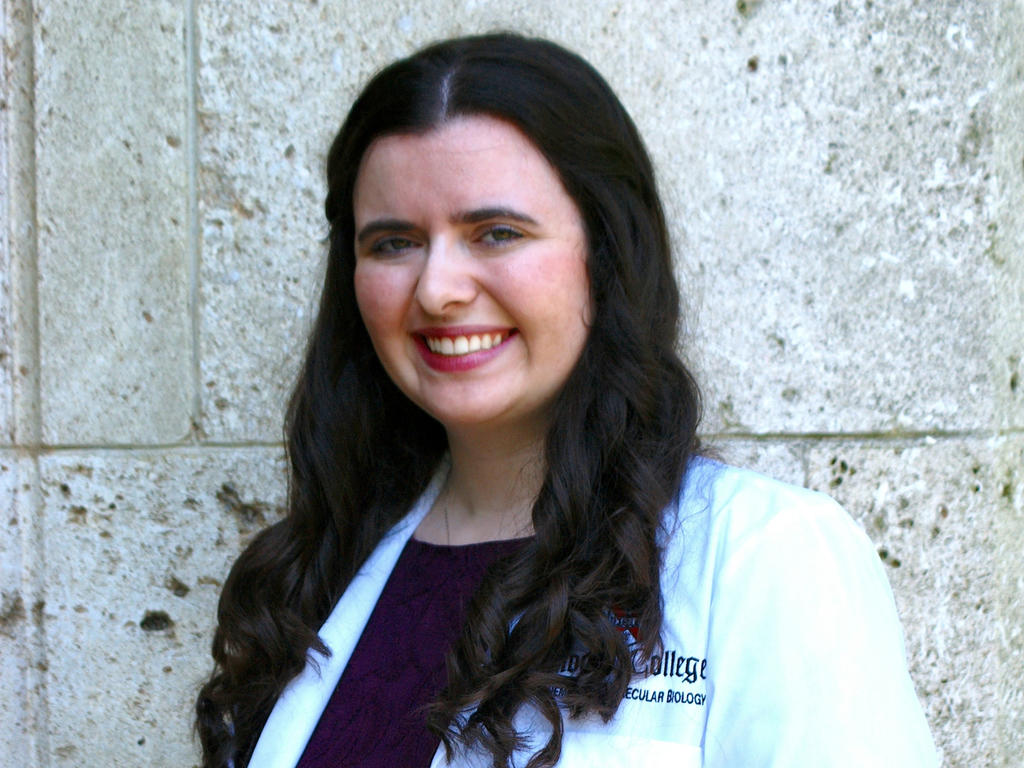Rhodes senior Emily Hayward has been accepted into a nationally competitive Medical Scientist Training Program (MSTP), which provides highly selected individuals the opportunity to pursue a combined M.D.-Ph.D. degree in order to care for patients and to conduct research. MSTP status is generally reserved for the top medical schools in the country. Programs are funded by the National Institute of General Medical Sciences, which is a part of the National Institutes of Health. Only about 170 positions are available each year for incoming students.
Hayward will be one of eight students entering the MSTP at the University of Alabama at Birmingham. “It is an incredible honor. The program will pay for all of my tuition, fees, and health insurance during medical and graduate school, plus I will receive a stipend for the seven to eight years of the program,” she says. “I learned recently that over the past 10 years, there have been eight students from Rhodes accepted into MSTPs. This is a huge achievement for a school our size!”
Among the alumni are Alex Tong ’11, who was accepted in 2011 at Case Western Reserve University; Emily Woods ’12, accepted in 2012 at Emory University; Grace Mosley ’14, accepted in 2014 at Icahn School of Medicine at Mount Sinai; and Sinifunanya Nwaobi ’07, accepted in 2007 at University of Alabama at Birmingham. Nwaobi currently is a pediatric neurology resident physician at UCLA Mattel Children’s Hospital.
Matthew Roberts ’14, like Hayward, also was accepted into a MSTP this year. He will be training at Medical University of South Carolina. Currently, he is doing clinical neurology research and working as an EMT at University of Missouri.
MSTP participants may choose from a wide range of research training programs in the biological, chemical, or physical sciences. Other disciplines in which MSTP participants can pursue graduate study include the computer sciences, social and behavioral sciences, economics, epidemiology, public health, bioengineering, biostatistics, and bioethics.
Hayward, who is majoring in biochemistry and molecular biology, says she contracted a severe brain infection during her freshman year and struggled with symptoms that mimicked multiple sclerosis for more than two years. “My illness was devastating. Yet, I have been honored beyond belief to have so many Rhodes faculty members, professors, and advisors help me get to the finish line, even if they had to drag me there at times! I am fully confident that without Rhodes College and the incredible Health Professions Advising here, I would not be in a position to enter such a prestigious M.D.-Ph.D. program. I am incredibly grateful for all of the support I have received along the way.”

Emily Hayward '16
Published on:
May 11, 2016